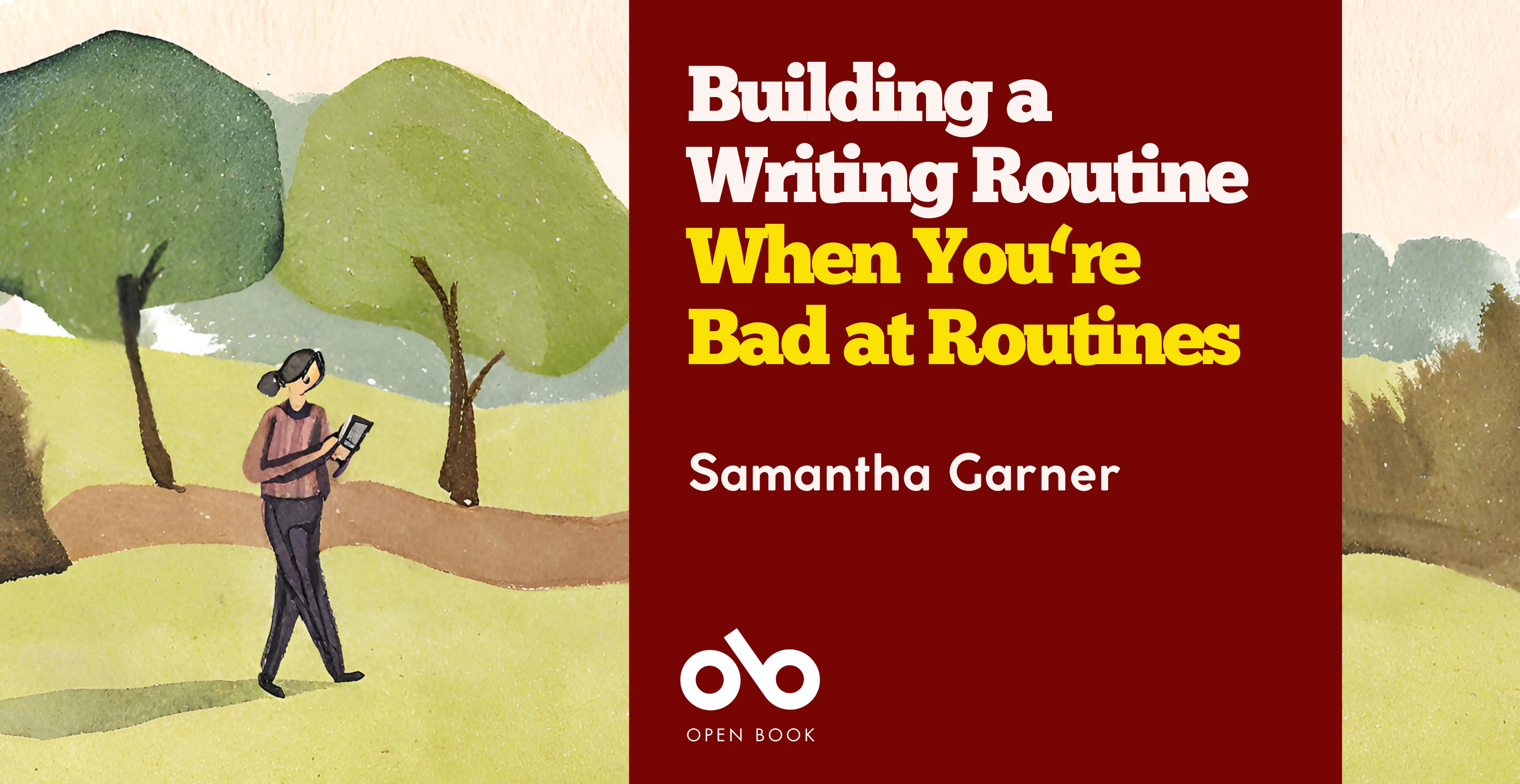Building a Writing Routine When You’re Bad at Routines
By Samantha Garner
I’ve written before about my bad luck in developing a structured writing routine. I’m happy to report that in the time since I wrote that, I still haven’t developed a structured writing routine—but I’ve written a novel, a novella, many poems, blog posts, and am working on projects all the time.
How is this possible, you may ask? Here are some ways I’ve built a routine-less writing routine:
---
I work on something writing-related every day
This is the major component in my writing life. I started focusing on it after reading this quote by Maya Angelou:
“What I try to do is write. I may write for two weeks ‘the cat sat on the mat, that is that, not a rat,’.... And it might be just the most boring and awful stuff. But I try. When I’m writing, I write. And then it’s as if the muse is convinced that I’m serious and says, ‘Okay. Okay. I’ll come.’”
Reader, it works. I’m not saying I wrote “The cat sat on the mat” for two weeks, but when I started to write something, anything, every day, it all became a little easier. To clarify, I don’t write actual narrative every day. Sometimes I edit. Sometimes I write thoughts on my current project or ideas for a future one. Sometimes I research and note down interesting things in my sometimes-unwieldy “Worldbuilding Notes” Scrivener file. It’s all part of writing! Time of day? Doesn’t matter. Word count? Doesn’t matter. In fact, when I’m trying to attempt a regular practice, word count can’t matter. It’s intimidating. What isn’t intimidating is spending a few minutes thinking about my project and taking small steps to give it a shape.
I don’t set a writing time limit
Time limits are also intimidating! I will forever envy those who can set a timer and just drop down into work mode. I can’t always do that. I sometimes feel I need a timer for my timer. Instead, what works for me is deciding that I’ll write for “a bit.” This can be five minutes, or it can be an hour. It can be as soon as I wake up, or it can be in the evening. Sometimes I do have to write within a certain block of time, particularly if I’m on a deadline, but for the most part I need to fit my writing around other things. I’m not the only one, I know, so I hope that releasing time-based pressure on your writing routine helps it feel easier to manage.
I focus on ritual rather than routine
This may be a matter of semantics, but for me it makes a difference. I used to force myself to write at the same time each day and stress over how many words I wrote. As you might imagine, it didn’t work as intended. Instead, I found that creating a little ritual around Writing Time helped bring my focus down from the clouds.
Your CanLit News
Subscribe to Open Book’s newsletter to get local book events, literary content, writing tips, and more in your inbox
For example: If I’m writing early in the morning, I make a cup of coffee with oat milk in my cream-coloured speckled mug my friend Pamela gave me as a gift, that I only ever use for coffee. If I’m writing at any other time, I make a cup of black Yorkshire Tea in my favourite blue-and-black mug. I don’t only drink coffee or tea when writing, but the combination of hot drink + open laptop usually does the trick. Lighting a candle is often part of this as well. My brain is called home from the field of daisies it’s frolicking in, and writing comes easier.
If you want inspiration from someone cooler than me, Toni Morrison writes this about her ritual of making coffee and watching the sunrise:
“…And I realized that for me this ritual comprises my preparation to enter a space I can only call nonsecular… Writers all devise ways to approach that place where they expect to make the contact, where they become the conduit, or where they engage in this mysterious process. For me, light is the signal in the transaction. It’s not being in the light, it’s being there before it arrives. It enables me, in some sense.”
I honour what my life is doing
Any writer or reader who’s ever been on social media on a Tuesday knows that books are published all the time. And most of the authors of those books have other things going on in their lives aside from writing. While I don’t have kids, I do have a day job and family commitments and the regular stressors and demands on my time that we all have. I also have chronic depression, which can be a significant hindrance on my pursuit of a structured writing routine. I’ve written in detail about how I manage a writing career and mental illness, but the big-picture idea I try to remember is that it’s okay to follow what my life is doing. This might sound counter to my first point, but it’s valuable to learn when writing really is impossible. Forcing yourself through it can just lead to burnout.
For example: I recently moved. Trying to write regularly during one of the top five stressful life events is not always a good idea! So I gave myself a little break. If I could write down some notes or adjust an existing sentence—great. If all I could think about was packing and booking elevators and the outrageous cost of housing—also great. Well, not great, but releasing myself from the obligation of writing just had to be okay. Moving wouldn’t take forever, but I’d always be a writer. It would be there when I was ready.
---
If you’re anything like me, I hope these routine-less writing routine ideas have helped you!
The views expressed by Open Book columnists are those held by the authors and do not necessarily reflect the views of Open Book.
Samantha Garner is the author of The Quiet is Loud, shortlisted for the 2022 Kobo Emerging Writer Prize. A Canadian of mixed Filipino-Finnish background, her character-driven fantasy novels explore themes of identity and belonging. When not writing, Samantha can be found daydreaming in a video game or boring a loved one with the latest historical fact she’s learned.
She can be found online at samanthagarner.ca and on Instagram and Twitter at @samanthakgarner.




